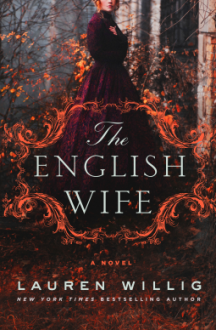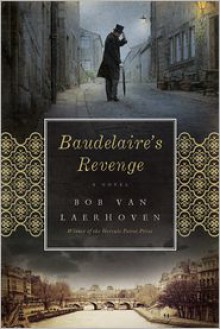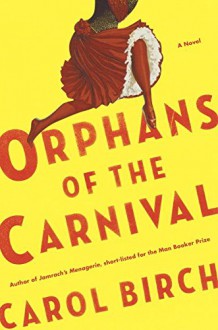
Thanks to NetGalley and to St. Martin’s Press for providing me an ARC copy of this novel that I freely chose to review.
In case you’re in a hurry and don’t have time to read the whole review (you know I can go on and on), I love this novel. I recommend it to anybody who enjoys historical fiction with a mystery at its heart, especially if you enjoy gothic novels. If you love Rebecca and Jane Eyre, I would advise you to check it out. And, for the insights it offers on the society of the time (both sides of the Atlantic), I think fans of Jane Austen who are interested in novels beyond the Regency period will also enjoy it.
This historical novel, set at the end of the XIX century, starts with a murder and the mystery surrounding it. On the day when Annabelle and Bay, a couple of the best of New York society (Annabelle, the aristocratic English wife of the heir of the Van Duyvil dinasty) have organised a ball to celebrate the completion of their new mansion, he is found dead with a knife (a dagger from his costume) in his chest, and his wife is presumed drowned under the icy waters of the river. Janie, Bay’s sister, alarmed at the different versions of the story that circulate (either her brother killed his adulterous wife and then committed suicide, or his wife killed him intending to run away with her lover, although her brother is also accused of adultery with their cousin Anne…) and how they will affect her little niece and nephew, decides to try to find the truth. She chooses an unlikely ally (more unlikely than she realises at the time), a reporter (her mother values privacy, appearances, and reputation above all, and she appears to be the perfect obedient daughter), and the novel tells the story of their investigation, that we get to follow chronologically from the moment the body is discovered, in January 1899, for several weeks. We also get to read about events that took place several years earlier (from 1894 onward), when Annabelle (also known as Georgie) first met Bay, in London. She was working as an actress and they become friends. These two strands of the story, told in the third person, but each one from the point of view of one of the main characters, Janie and Georgie, run in parallel until towards the very end, and that offers us different perspectives and insight while at the same time helping keep the mystery going. The more we know about the ins and outs of the characters, their relationships, their families, and their secrets (and there are many. Other than Janie, who only starts keeping secrets after her brother’s death, all the rest of the characters carry heavy loads, sometimes theirs, sometimes those of others), the more we feel invested in the story, and the more suspects and red herrings that keep appearing. I have read some reviewers that complained about the story not being a mystery or a thriller. Well, a thriller it is not, for sure (although I found the reading experience thrilling for other reasons). It has some of the elements of a classic mystery of the era, with the added beauty of the detailed setting, the appreciation of the subtle social nuances of the time, the strong portrayal of the characters, and the beautiful language. You might guess who the guilty party is (I must confess I kept wavering between several possible explanations), and also some of the other secrets (some are more evident than others), but I thought it worked well, although not, perhaps, for a reader who is looking, exclusively, for a mystery and wants to get to the bottom of it as soon as possible. This is not a book written following the rules of the genre we are so familiar with (nothing extraneous that does not move the story forward, kill you darlings, keep descriptions to a minimum) and, in my opinion, is all he better for it.
This book is full of great characters. We are limited to two points of view only, which might be biased due to personal reasons, and some characters, like Cousin Anne, generates strong emotions from all those involved (she never conforms, she steals the man her cousin Janie was going to marry, later divorces, and her attitude towards Annabelle is not supportive), but she has some of the best lines, and we get to understand her quite well by the end of the story. Janie, who has always been dismissed by her mother and ignored by the rest of the family, is an articulate, intelligent, cultured, and determined woman. Burke, the reporter, is a complex character with stronger morals than anybody would give him credit for, and Mrs. Van Duyvil, the mother, is a larger-than-life woman, whose influence is felt by those who come into contact with her, and she is far from likeable, and there are other characters that appear in a negative light. Even the “good” characters (Bay and Janie) have complex motives for their actions, and nothing is a black or white as we might think at the beginning.
As I mentioned above, the author (whose work I’d never read before but I’ll make sure to check) captures well the nuances of the time, the dress, the setting, the social mores (yes, a little like Jane Austen, although in a very different historical period), writes beautifully, and her choice of female characters as narrators allows us a good insight into what life was like at the time for women, whose power always had to be channelled through men. Times were changing already, and people keep referring to the Vanderbilts’ divorce, but this was not generally accepted yet, and certain things had to be kept hidden. The dialogue is full of wit and spark at times, and although there is drama, sadness and grief, there is also merriment, fun, romance, and very insightful comments on the society of the time (and yes, our society as well).
The book is full of literary references, historical-era appropriate, and most readers fond of the genre will enjoy the comments about books (and plays) of the time. I did. The narrative takes its time to explore the situations and the characters in detail, but I felt it moved at the right pace, giving us a chance to reflect upon the serious questions behind the story. Who decides who we truly are? How important are appearances and society conventions? What role should other people’s opinions play in our lives and actions? I don’t want to give any spoilers away (I enjoyed the ending, by the way, but that’s all I’ll say about it), but I thought I’d share some snippets from the book.
The juries of the world were made of men. A man could hold his honor dear in masculine matters such as gambling debts and never mind that he left a trail of ruined women behind him. Men diced with coin; women diced with their lives.
Georgie took a sip of her own tea. It was too weak. It was always too weak. She blamed it on the Revolution. Since the Boston Tea Party, the Americans had apparently been conserving their tea leaves.
“So you came rushing through the ice?” Janie didn’t know whether to be touched or shake him for being so foolish. “Slaying a dragon would have been easier. And warmer.”
Viola lifted her head. “I don’t want a lullaby. I want a story.” “Even better. I have a wonderful one about a prince who turned into a toad. You’ll adore it. It’s very educational.” (This is Anne. She has many wonderful retorts).
And this one must be one of my favourite sentences of the year so far:
Janie felt like a prism: fragile, but with the chance of rainbows.
In sum, a beautifully written historical fiction novel, with a mystery (several) at its heart, memorable characters, fantastic dialogue, and a gothic touch. Unmissable.

 Log in with Facebook
Log in with Facebook 







